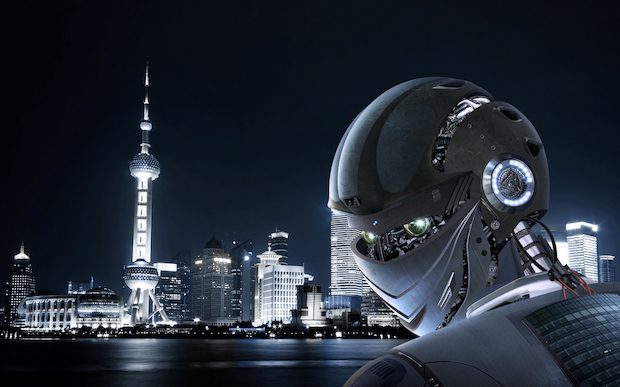‘Gradually, Then Suddenly’

Below is one of the O’Reilly newsletters I receive regularly. O’Reilly is a major part of the big tech establishment, being one of the biggest suppliers of training and materials to high-tech folks. They are always at the forefront. The trends mentioned below are quite interesting, but most interesting are the sentiments I saw that are in sync with points from Tucker Carlson’s recent opinion piece and some of what you write about. Strange times, eh?
I’m not going to post the entire newsletter, but here are the parts the reader is talking about. The newsletter begins like this:
There’s a passage in Ernest Hemingway’s novel The Sun Also Rises in which a character named Mike is asked how he went bankrupt. “Two ways,” he answers. “Gradually, then suddenly.”
Technological change happens much the same way. Small changes accumulate, and suddenly the world is a different place. Throughout my career at O’Reilly Media, we’ve tracked and fostered a lot of “gradually, then suddenly” movements: the World Wide Web, open source software, big data, cloud computing, sensors and ubiquitous computing, and now the pervasive effects of AI and algorithmic systems on society and the economy.
What are some of the things that are in the middle of their “gradually, then suddenly” transition right now? The list is long; here are a few of the areas that are on my mind.
The list includes:
1) AI and algorithms are everywhere
The most important trend for readers of this newsletter to focus on is the development of new kinds of partnership between human and machine. We take for granted that algorithmic systems do much of the work at online sites like Google, Facebook, Amazon, and Twitter, but we haven’t fully grasped the implications. These systems are hybrids of human and machine. Uber, Lyft, and Amazon Robotics brought this pattern to the physical world, reframing the corporation as a vast, buzzing network of humans both guiding and guided by machines. In these systems, the algorithms decide who gets what and why; they’re changing the fundamentals of market coordination in ways that gradually, then suddenly, will become apparent.
More:
3) China and the transformation of Africa
Speaking of Africa, if it isn’t on your radar, it should be. Gradually, then suddenly, it’s becoming “the next factory of the world.” That’s the title of a 2017 book by McKinsey’s Irene Sun. There’s also a detailed McKinsey report, Dance of the Lions and Dragons, based on a study of more than 1,000 Chinese-owned factories in Africa. As the US has withdrawn into a kind of neo-isolationism, China is stepping up. There’s a lot of misinformation, rooted in denial, about its “One Belt, One Road” initiative. Expect to wake up one day and realize that China has done to the US what the US did to the UK in the 20th century, becoming the new leader of the world economy, for good or ill. Up until now, China has spent a lot more time copying us than we spend copying them; that’s suddenly going to go into reverse. For a detailed look at the competition between the two “AI superpowers,” read Kai-Fu Lee’s book of that name. See trend 1.
And:
9) The crisis of faith in government
Ever since Jennifer Pahlka and I began working on the Gov 2.0 Summit back in 2008, we’ve been concerned that if we can’t get government up to speed on 21st century technology, a critical pillar of the good society will crumble. When we started that effort, we were focused primarily on government innovation; over time, through Jen’s work at Code for America and the United States Digital Service, that shifted to a focus on making sure that government services actually work for those who need them most. Michael Lewis’s latest book, The Fifth Risk, highlights just how bad things might get if we continue to neglect and undermine the machinery of government. It’s not just the political fracturing of our country that should concern us; it’s the fact that government plays a critical role in infrastructure, in innovation, and in the safety net. That role has gradually been eroded, and the cracks that are appearing in the foundation of our society are coming at the worst possible time.

Subscribe for as little as $5/mo to start commenting on Rod’s blog.